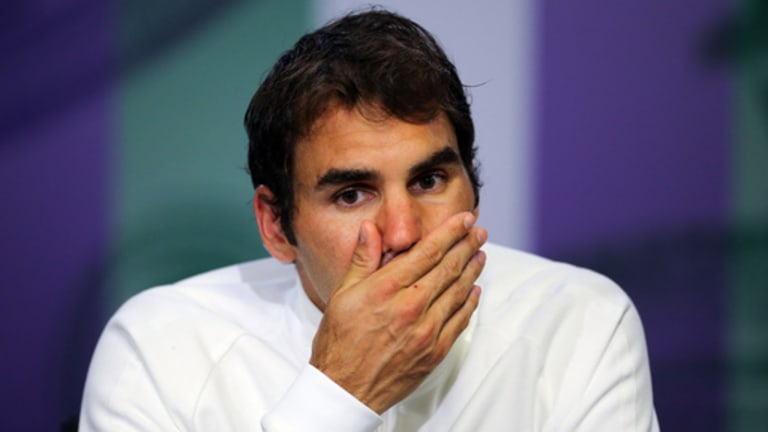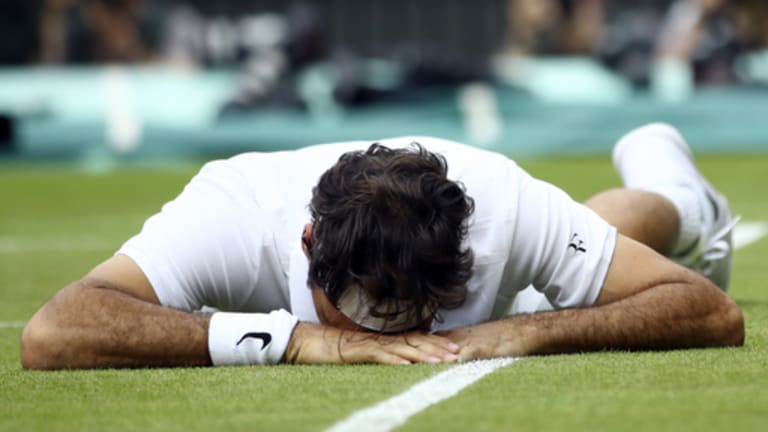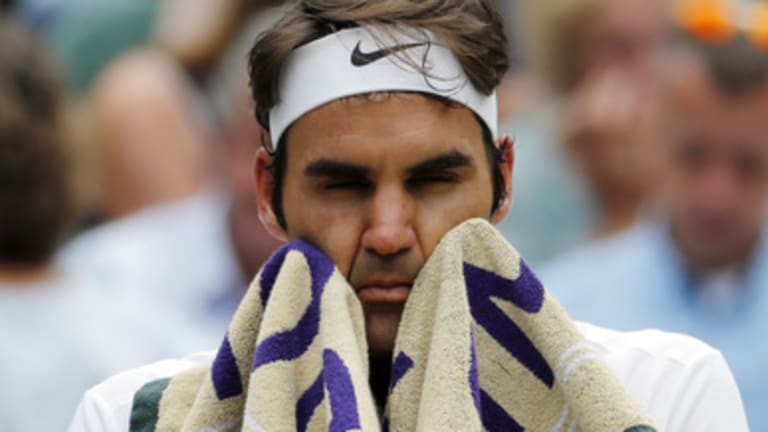“I’m extremely disappointed to announce that I will not be able to represent Switzerland at the Olympic Games in Rio,” Roger Federer wrote on Facebook on Tuesday, “and that I will also miss the remainder of the season.”
Even for those of us who watched Federer’s leg give out during his semifinal loss to Milos Raonic at Wimbledon, this message hit with a jarring thud of surprise. The remainder of the season? That’s unprecedented in Federer-world. Before this year’s French Open, the Swiss Maestro’s body had gone nearly 20 years without missing a beat. He had played in 65 straight Grand Slam tournaments, a record run that dated back to the previous century.
But Federer’s seeming imperviousness to the physical wear and tear that comes with being a professional athlete finally came to an end in 2016. In fact, after being held at bay for so long, Father Time has been having a field day with the soon-to-be 35-year-old. At the end of January, Federer underwent knee surgery that kept him out for two months. Twice, just as he was ready to return, his body revolted against him: In March Federer flew to Miami, only to pull out with gastroenteritis; in April he flew to Madrid, only to pull out with a bad back. Finally, an encouraging return at Wimbledon ended with Federer splayed out across the grass against Raonic. Apparently, it was the knee again.
“I need more extensive rehabilitation following my knee surgery earlier this year,” Federer wrote. “The doctors advised that if I wanted to play on the ATP World Tour injury free for another few years, as I intend to do, I must give my knee and body the proper time to fully recover.”


